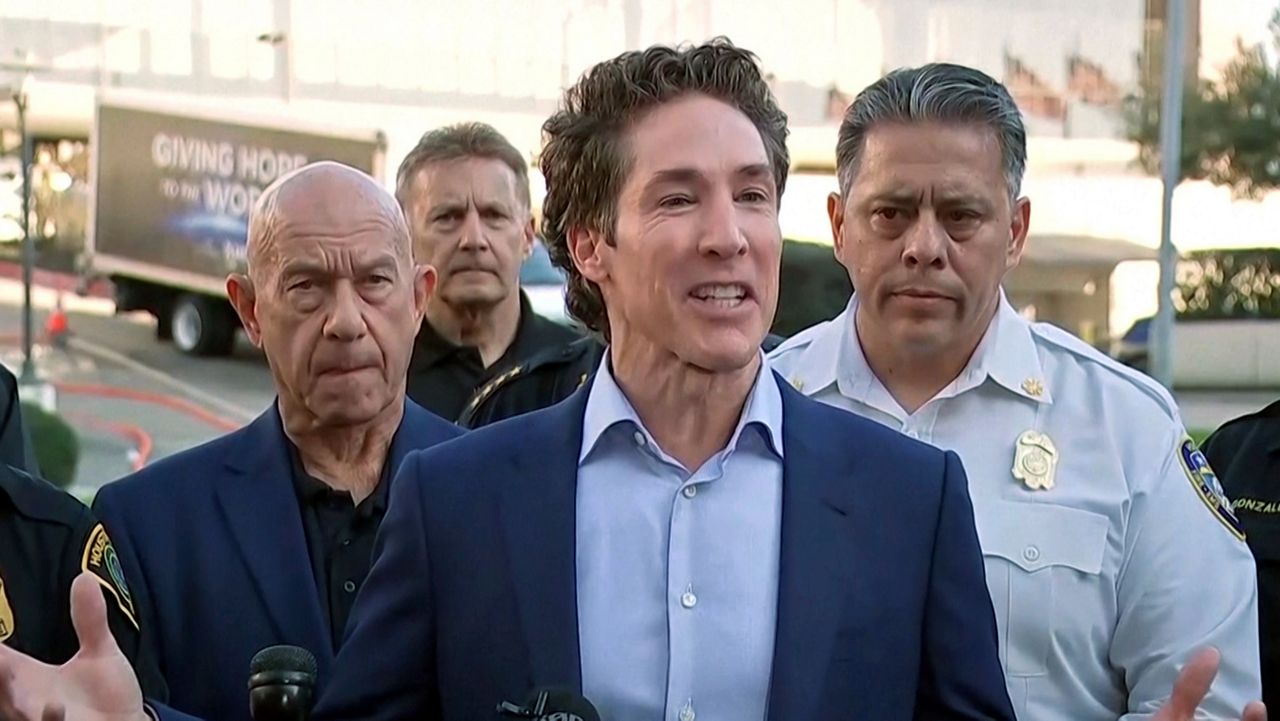
Joel Osteen, the prominent pastor and author known for his uplifting messages and positive outlook, recently made headlines with a bold prophecy regarding the White House. During a Sunday service, he proclaimed that in four days, there would be significant events that would shake the foundations of political power in the nation. This statement sent shockwaves through both his congregation and the wider public, prompting discussions about the implications of his words.
Osteen’s message, steeped in the themes of hope and divine intervention, suggested that a turning point was imminent. While he refrained from detailing the nature of the events he foresaw, he emphasized the importance of faith and resilience in the face of uncertainty. “Change is coming,” he declared, urging his followers to remain vigilant and to pray for wisdom and guidance during this pivotal moment.
Critics and supporters alike took to social media to express their views. Supporters highlighted Osteen’s ability to inspire and encourage, seeing his prophecy as a call to action for those disillusioned with current political leadership. For them, it was a reminder that faith can play a vital role in societal change. On the other hand, skeptics questioned the legitimacy of such a prophecy, arguing that public figures should be cautious in making predictions about national events, especially in a climate of division and tension.
In the days leading up to the prophecy’s timeline, various interpretations emerged. Some speculated that Osteen was alluding to upcoming political announcements or changes within the administration. Others considered the possibility of protests or movements gaining traction, as citizens seek to voice their concerns about governance and leadership.
As the four-day mark approached, media outlets began to cover the story extensively, focusing not just on Osteen’s prophecy but on the broader implications of prophetic speech in politics. The debate centered on whether spiritual leaders should engage with political matters, and to what extent their influence might sway public opinion.
On the fourth day, a whirlwind of events unfolded that kept the nation on edge. Breaking news filled screens across the country, with reports of high-profile resignations and unexpected announcements from key figures within the White House. While some connected these developments to Osteen’s words, attributing a sense of prophetic accuracy to the pastor, others remained skeptical, viewing the timing as coincidental.
Regardless of one’s stance on Osteen’s prophecy, the incident highlighted the complex relationship between faith and politics. It sparked conversations about the role of spiritual leaders in shaping societal narratives and how their messages resonate within the broader context of national discourse.
In the aftermath, Osteen reiterated the importance of hope and perseverance, encouraging his followers to maintain faith in the face of uncertainty. He reminded them that while specific predictions may be open to interpretation, the underlying message of hope and renewal remains paramount. As the nation continued to grapple with its political landscape, many found solace in the idea that change is possible and that collective faith can lead to transformative outcomes. Whether or not Osteen’s prophecy holds true, it serves as a reminder of the power of belief in shaping our reality.
Leave a Reply